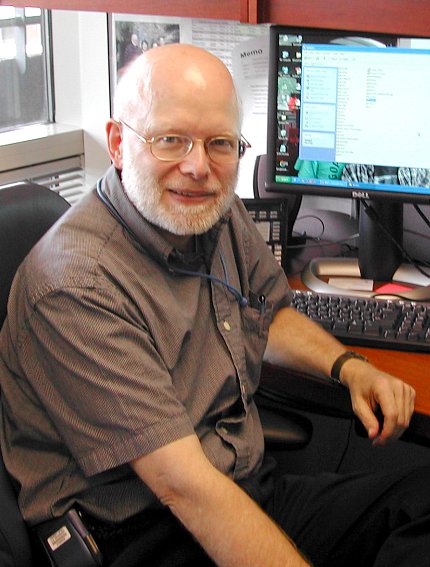After 34 Years, Taylor Retires From NCI

Dr. Philip Taylor retired from the National Cancer Institute in May after 34 years of distinguished service. He devoted his career to the conduct of epidemiological studies to inform cancer prevention strategies for malignancies of the upper gastrointestinal (UGI) tract, including esophageal and gastric cancers.
His work involved a variety of research approaches, including cancer prevention trials, early detection studies, etiologic studies, laboratory-based molecular research and clinical nutrition studies.
“Phil brought a quiet authority to his work, and engendered an atmosphere of collaboration and team science,” said Dr. Margaret Tucker, director of the Human Genetics Program and former chief of the Genetic Epidemiology Branch, where Taylor was a senior investigator for most of his career.
Recently, he had focused on identifying germline variants of susceptibility to UGI cancers through genome-wide association and family studies, evaluating tissue alterations in UGI cancers and pre-malignancy and integrating germline and somatic data with functional genomics to understand etiology and identify biomarkers for early detection and prognosis.
Taylor was pivotal in the launch of the Nutrition Intervention Trials in 1985, two randomized interventional trials involving 32,000 residents of Linxian, China, to evaluate the effects of vitamin and mineral supplementation on total mortality and total and cause-specific cancer mortality in a rural Chinese population.
After the intervention phase ended in 1991, Taylor and colleagues determined the micronutrient combination of selenium/vitamin E/ß-carotene reduced total mortality, total cancer mortality and gastric cancer mortality. The protective effects of the intervention have lasted more than two decades. These subjects continue to be followed and serve as one of the most important cohorts for the study of upper GI cancer.
In addition to his research, Taylor had been a mentor to scores of trainees, some here for short visits, others who completed postdoctoral training with him and went on to be life-long collaborators.
During a visit to DCEG in April, Dr. You-Lin Qiao, professor and director of the department of cancer epidemiology at the National Cancer Center/Cancer Hospital, Chinese Academy of Medical Sciences and Peking Union Medical College, reflected on Taylor: “Phil was my first American mentor. We have kept our partnership over many years. Now, in my role at the Cancer Hospital in China, I send students to Phil and to the NCI for training. I credit Phil and the NCI for setting me on the track to my career in research, which began at NCI in 1989 with our collaboration on lung disease and health.”
Taylor received his medical degree from the University of Iowa in 1973 and completed his residency in internal medicine at Vanderbilt University in 1976. He joined the Centers for Disease Control in 1976 as an Epidemic Intelligence Service officer and, while there, completed a residency in preventive medicine.
He received his master’s and doctoral degrees in epidemiology from Harvard School of Public Health and came to NCI in 1983. He was chief of the Cancer Prevention Studies Branch from 1987 to 2004, before joining the Genetic Epidemiology Branch in 2005, and the Metabolic Epidemiology Branch in 2016.
In retirement, Taylor will serve as a special volunteer in the division.
